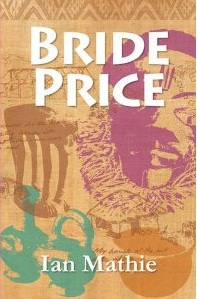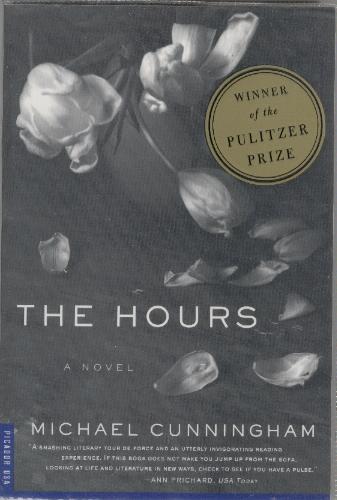Reviews written by Rosanne Dingli
Bride Price Ian Mathie
This book tells the reader who has never been to Africa - who has no personal experience of Zaire, or its people, or its history - a great deal. It is a simple story, but constructed with a host of fascinating and complex ingredients, least of which not being the location, with its smells, movement, and noises; its strange fauna, and fast growing and swiftly encroaching flora. Its vibrant people, with all their human strengths and foibles. It takes the reader there, unaware that the simple story is intensively potent, and full of the potential to impress itself indelibly on the memory.
Readers have two memory caches, it seems: one for ordinary life and
procedures, another for what is read, ingested through the narratives of
others. There are rich and vibrant places to visit, fascinating people
to know, and valuable life lessons to learn. There are such complex life
stories and histories of places to witness, far away from the bland and
predictable suburbs of the world's cities. How little we know of the
real world.
This is narrative non-fiction at its best: personal experience told in a self-effacing way, a way that brings to life a Zaire during President Mobutu's reign. A Zaire whose village life thrums with vibrant, colourful and very meaningful life: rituals, usage and customs to be marvelled at for their logical simplicity, for their human complexity.
This is narrative non-fiction that tells us much more about the
author than he probably would like revealed, but it is manifest in each
line: such sensitivity. Such capacity to take on - without fear, without
concept of threat to his own customs, language, usage, or personal
habituation - the entire character of a village and become one of its
best loved and most respected members. By enabling adopted daughter
Abélé's acceptance, his own is assured, but it is not intentional or
planned. It is utterly altruistic and generous. The friendship and
respect of the Akuamba Kau is not earned lightly: it is neither a
tourist nor a mere chance passer-through who receives the secret fruit
of this forest.
There are surprises that could seem harrowing, and a growing
understanding that the spiritual life of the forest is not to be taken
as quasi-fictional. And then there is the end: an emotional one, which
moves the reader to tears. What befalls this village in the rain forest?
How does its fate affect the light-skinned man who tended its water
supply, and the delicate relationship he tried to safeguard for the
future of one of its own?
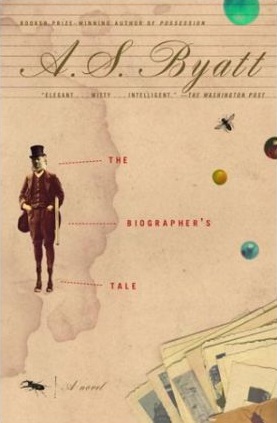 The Biographer's Tale A S Byatt
The Biographer's Tale A S Byatt
An acquired taste
This book is not a light read. It is heavy, layered, rich and in some
parts indigestible. Yes, like the best Christmas cake. It contains not
only literary references, but scientific and historical ones. One is
expected to know who Carolus Linnaeus was, and Galton, and Lyle. One is
expected to smile at elevated jokes and nod at passing references to
evolution theory, history of science, philosophy. One is expected to
remember the trials and tribulations that related to literary fads such
as deconstructionism and post-colonial feminism.
However, there are
other layers, that allow those readers intent on a story to find a
narrative that engages. There is the eternal search for romance, the
confusion and wonderment that accompanies a change in career direction.
There is the uncertainty that comes when one meets a gay couple, or when
one meets a person with a definite hard-wired hardcore sexual
perversion.
A S Byatt uses research like some people use mayonnaise. This is the novel you read not so much to pass the time, but to relish and savour, to wonder at in awe. How can one person have at one's disposal such a wealth and weight of knowledge? And... what have I missed by not knowing what was necessary to know?
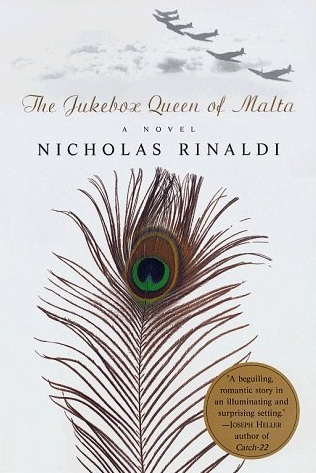 The Jukebox Queen of Malta Nicholas Rinaldi
The Jukebox Queen of Malta Nicholas Rinaldi
Authentic and absorbing
The atmosphere created by Nicholas Rinaldi in this novel is authentic:
this was Malta in WWII, when there was constant bombing, little food and
a common desperation that led to individual acts of heroism, ingenuity,
and folly.
Having lived in Malta for 27 years, the scenes, characters and
dilemmas created by Rinaldi reawakened in me a kind of nostalgia;
reminded me of the steadfast, ingenious Maltese: their seige mentality,
pious irreverence and black humour.
The writing is crisp, immediate and
evocative, with passing references to literary and historical stuff,
emotional and psychological stuff, and religious and philosophical stuff:
but it is never heavy, overbearing or dry. This is an engaging novel
that entertains while it makes the reader wonder (because it is obvious
the history on which it is based is real) how the human spirit
experiences, endures and lives to overcome. There are insurmountable
obstacles facing the characters in this books. There are classical
juxtapositions of characters and scenes. There are locations that
suddenly take on personalities of their own, taking charge and
dominating the story.
That's Malta for you: its history, presence, size
and improbabilities arrest the heart. In this case, it made an author
stay and write on. I found it hard to put down, and will find it hard to
forget.
More than the eye can see
Michael Cunningham sensitively describes the lives of women. He also sympathetically takes us into the minds of homosexual people, making us wonder, and then making us see. His flowers, furniture, artefacts - even his cake - are believable. His smells are credible, and his textures.
This is a book written with three protagonists of equal importance, and yet, one is seen as being the fulcum, the raison d'etre of the whole work. Without Virginia Woolf, there would have been no Mrs Brown. Without Mrs Brown, there would have been no Richard. Without Richard, Clarissa's role in the story is meaningless. This is a clever way to build a book. It is also a clever way to give modern readers an insight into what it meant to be a writer in the 1930s; what it meant to be gay or a lesbian at other times apart from the present. It gives one a yen to find out - if one has not already - what "Mrs Dalloway" is all about. What novels of the '30s were like.
Virginia Woolf's trials and tribulations were very real. At the outset and the end of writing a novel, she would experience hellish episodes any novelist would relate to! She was creating a watershed, and it took its toll. Novel writing has never been the same since she created her protagonists all those years ago.
She made them think confused thoughts: made them vacillate, wonder, crave different things at different times, so at variance with how readers were used to thinking characters should behave. Characters hardly thought before - they rarely experienced ambiguity of any kind, let alone sexual.
Michael Cunningham takes Woolf's groundbreaking ways and how they affected her, and pulls them three ways, joining them together when we all finally realise who Richard is. After he slips off the edge, we find out who he really is.
Yes, real people question themselves. Yes, real people find themselves withdrawing from those they love. Yes, real people do vacillate, buy flowers for the wrong people and for the wrong reasons. Yes, real people do note the colour of the finger food they eat at things like book launches and award parties. Yes, real people try to top themselves and fail, ending up outliving all the ones who displeased, enraged or enthralled them. It's not such a hard book to believe.
Still, I wonder whether I would have liked a more dramatic ending. And perhaps it is rather demanding of the reader to present a set of characters all of whom are to a greater or lesser extent homosexual. But it is a premise one decides to accept after the first 30 pages. It is a view into the lives of THESE characters, the ones the author has chosen to show us, in these hours.
"The Hours" is just that... the space of a
day into which are crowded the fortunes, reasons, motives and lots, of a
bunch of women. Not just three. See this book through the eyes of
Sally, or Julia, and you have "The Years."
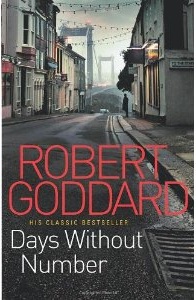 Days Without Number Robert Goddard
Days Without Number Robert Goddard
Intellectual dilemma - literary or personal?
Robert Goddard's latest thriller seems to be written within the mould
this perspicacious author has set himself. Perspicacious? Yes, well -
Goddard is the kind of author who does tend to use archaic words,
sending one scrabbling for a dictionary older than your average
Macquarie or Oxford. You won't find 'phocine' in any recent one, that's
for sure.
But will the hooked reader waste time searching for rare
words? Perhaps not: these thrillers of Goddard have the habit of keeping
one engaged, despite many twists and turns that have the mind
simultaneously wanting more and wondering how on earth it's all going to
clarify and tie up in the end. The curlicues and hairpin bends in this
particular novel are of fine calibre: we have history, we have accuracy
in props and language, we have archaeological detail the like of which
will set even the most demanding reader's hair on end.
Nick
Paleologus (yes, even names have that unlikely ring to them, but seem to
weave well into the warp and weft of it all) is the son of a retired
archaeologist, with a family of siblings whose closet of skeletons is
not exactly run of the mill suburban fare. Is it important that his
family name is linked to the Emperors of Byzantium? Suspense of
disbelief is necessary in most novels; here one widens the eyes and
pleads for more. He has an irascible father, something many of us can
relate to, seeing the comparatively recent time in which the novel is
set. Irascible fathers were the order of the day then, and not only in
England. The reader understands the cynical bent, the sardonic remarks,
the pointed self-absorption that erases all else.
The siblings too,
are admirably drawn, especially the female ones and their sad choices in
spouses, their mistakes with raising children, and bewilderment when
faced with adolescent escapades coming home to roost.
But what draws
and amazes most in this book is the history, and the weave of known
events into a convoluted story that impresses not only with its ability
to thrill and make one turn pages, but especially with its ability to
make one conjure and devise possible explanations. What a writer it
takes to manage to persuade a reader of a possible historic explanation
that sits there, dangling its possibilities under one's nose, swinging
and tempting with seduction. What a way to devise a red herring. This
method of charming an audience is perhaps foolproof, because it uses the
reader's own bank of general knowledge. Who would not be persuaded to
stay on to find out if their educated guess is right?
Educated: the
operative word here. These novels of Goddard's, and Days Without Number
in particular, appeal to readers with a considerable bank of general
knowledge, with a considerable love of those facts and figures, those
nuggets of trivia, garnered over the years and necessary only - these
days - when it comes to the vicarious pleasure of watching quiz shows.
So one reads with pleasure, recalling stuff considered redundant, and
taking pleasure in the fact someone has taken the time to write it all
into a means for entertainment.
There is a persecutor here: a
villain bent on torturing the protagonist and his family members. The
identity of this vulture is withheld until it is rendered quite
skilfully and all too clearly plain. But that is not nearly enough:
there is a larger all encompassing and all meaningful mystery that hangs
until the very last pages, and that is the big `what if' question the
author sets us. Exactly how skilfully this matter is tackled needs to be
examined by the individual reader. Only those who enjoy intellectually
driven novels will enjoy this kind of ploy. A philosophical question of
judgement, of morality, of consequences and resolution is set to
readers, who find out more about themselves than they think they would
at the outset. Relating to a protagonist - or two - as they set out
towards the proverbial blue yonder at the end can make or break a novel.
Here, as usual, the reader must decide, teased until conclusion with
even the titles of chapters!
In Days Without Number, we do not have
the expected protagonist turned sleuth, an archetype expected in much
modern fiction. Instead, we are given an entire family whose distance
and cordiality developed over time is erased with a kind of sticky
intimacy one associates with infancy. Once more, brothers and sisters
are forced to 'hold hands'. They rediscover personality traits in their
siblings they thought they could hold at arm's length, disassociate from
their own bank of quirks. Escapades and exploits of parents and
avuncular relatives are once more brought to the surface and examined
for kinks, with the result that modern motives become clearer and more
rabid: more mercenary.
The pursuit of happiness becomes confused
with the pursuit of comfort and financial ease. Who today would not
relate to that? The solution of a historical mystery is bound up with
personal dilemmas the like of which we all nurse. What if? The reader is
set a perplexing puzzle ensconced within locations, historic settings
and very plausible details so that one asks oneself the very personal
and pertinent question: what would I do in such a situation?
One
also asks the question: would I be so gullible, given such a strange set
of circumstances? The answer is not always clear, because fathers and
siblings are not easy to deal with, even in the best of families.
Emotional motives, sticks and carrots, abound. The bones of family
skeletons are not hollow, nor are they light. Relating to the disclosure
of a fictional history brings one close to considering one's own: what
stories did our parents tell us? And with what motives?
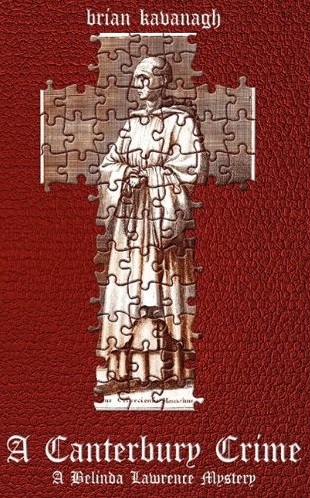 A Canterbury Crime Brian Kavanagh
A Canterbury Crime Brian Kavanagh
Wished for more
A lost relic, a missing last chapter, a marriage proposal: all mysteries
that keep the reader interested to the end. St Thomas Becket -
Archbishop of Canterbury during a tumultuous time for the Church - is
present in a subtle way. Only one passage from his history is directly
introduced into the narrative, but becomes tantalising; the way he met
his death harrowing, and an intrinsic part of this slim but powerful
novel by Brian Kavanagh.
The star of the novel is of course Belinda Lawrence, who takes to
mysteries like a duck to water, pulling behind her a reluctant and very
eccentric boss, and a suitor whose willingness comes with strings.
Together they tackle a motley band of suspects that intrigue the reader,
if only for the variety of ways the author makes them interesting and
suspicious.
Cool and low-key, this is a mystery that shimmers on the surface of a
plot that is historically deep, with emotions only hinted at. Love,
terror, betrayal and real insanity appear like fleeting shadows, coming
up to break the surface in small but violent explosions. Ancient weapons
causing contemporary death: a grisly but inevitable end for two of the
characters. One is known from the outset: Belinda and Hazel are on
location to make valuations of a deceased estate, after all. But the
other is a complete surprise, and shocks the reader out of complacency.
Brian Kavanagh has done it again. This is a recommended read that comes with one proviso: the reader will wish it was longer.
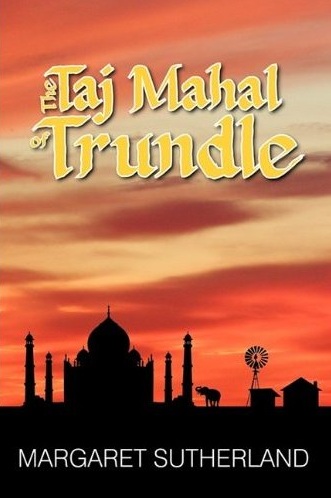 The Taj Mahal of Trundle Margaret Sutherland
The Taj Mahal of Trundle Margaret Sutherland
Nothing dull about Trundle
A number of important life issues are dealt with in this deceptively cozy novel. Struggles to do with domestic violence, bereavement, skeletons in closets, sibling rivalry and racism are nicely handled by an experienced author. There are many characters, but they all come into contact with Marie and Ronnie, through whose eyes the small town atmosphere is magnified. Each personality is finely drawn, especially through their dialogue, and their humour, sadness, and drama are felt by any reader with empathy. The grandiose plans of an otherwise reticent man seem to demonstrate how much he misses his wife, but his plans to build an ostentatious shrine are not universally welcome. By the end of the book, however,real changes occur, and long-held opinions are either mellowed or transfigured. The ending is no surprise, but is heartwarming. The words uttered by Mr Lal are true for all of us: "We need others."
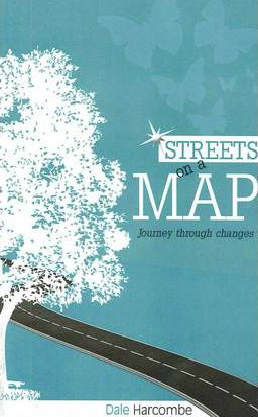 Streets on a Map Dale Harcombe
Streets on a Map Dale Harcombe
The importance of compassion and friendship
The subtitle of this engaging novel says it all. There is no doubt that
change is the only dependable aspect of life. Change cannot be avoided
because it comes through ageing, having a family, house moves and
bereavements. All these aspects - grim and joyful - are dealt with with
such mastery in this book, that the reader feels a part of the
progression through the various stages in the life of Abby, the story's
likable protagonist. Women face change with finality, wisdom, fear or
fatalism: but they face it, and the challenges that changes present in
this novel can be recognized as those that provide dilemmas and dread.
What lifts this narrative from the rest? The unmistakable presence
of compassion, the strengthening comfort of friendship, and the
heartening hope of persistence and support. Dale Harcombe infuses these
through the story which, although sprinkled with all the dismaying
ingredients that life can provide, such as the loss of a child, the
tepid nature of a marriage for which one had so much naive hope, or the
wishful aspiration that good friends will live forever, gives the reader
a realistic look at life in a country town. No reader who has ever
lived in a small community can deny that the spirit that lives on in
spite of life's changes is bolstered by characters that raise a group of
people to a real community. In this book Laila is a star. Perhaps there
is a 'Laila' in every country town - I have met such a person myself: a
fount of consolation in times of despair.
"Stubborn as a barnyard bull, is our Laila." Abby says these words
and the reader, who knows the character well by then, knows this to be
true of those stalwarts who shine in a community, who provide succour,
help and hope. They are the ones that are loved like family, when family
lets you down. "People are people ... they have the same problems here
as anywhere else," says Laila. And that is the essence of this book. It
gives the reader a sense that problems are universal, and that we make
of them what we can and what we will, just as we do with joy or love.
Read this book with the knowledge that none of what these characters
survive is unique, yet it is powerfully interesting, because it is
almost as if the story is about ourselves. A wonderful, sustaining read
by a masterful storyteller.
